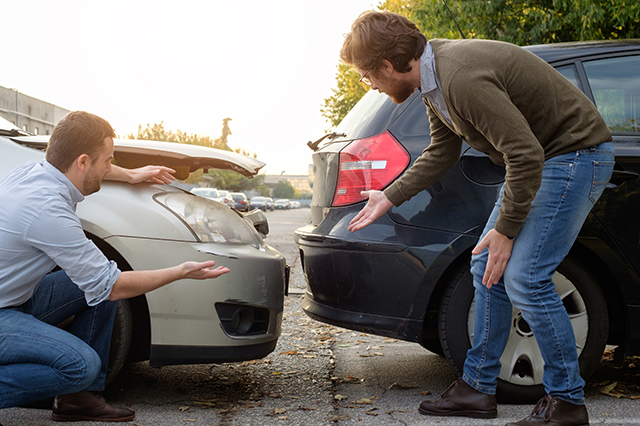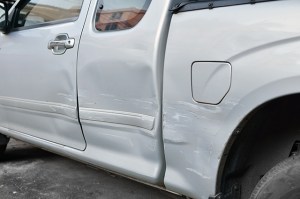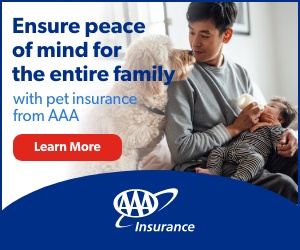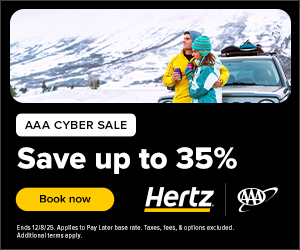Car insurance scams are illegal schemes that involve drivers, body shops or towing companies who try to cheat the system and make money. Unfortunately, even if you have never been directly involved with an auto insurance fraud incident, all policyholders end up footing the bill through higher premiums.
“Fraud costs. It’s rampant and everybody pays as a result,” said AAA spokesman and Senior Manager of Public Affairs Robert Sinclair.
We’ve put together a list of some of the most common car insurance scams, so you can do your part to combat this widespread issue and avoid becoming a victim.
Auto Insurance Fraud Affects Everyone
Auto insurers lose at least $29 billion a year due to insurance scams, according to the most recent numbers from the Insurance Information Institute. And because it is so common, fraud is accounted for in all auto insurance policies, especially in places where it’s more prevalent.
Insurance companies determine their rates, at least partially, based on losses. So, the more losses – or claims – filed in a specific city or state, the higher premiums are likely to be. Additionally, fraud can slow legitimate claims and, in some cases, present the possibility of physical danger.
Types of Car Insurance Scams
Counterfeit airbags
In these cases, repair shops replace legitimate air bags with cheap knockoffs to save themselves money or, in more extreme cases, fill the air bag area with other materials.
Parking lot scams
If a stranger approaches you in a parking lot, claims to be with an auto repair shop and offers to provide services, whether it’s fixing a windshield or repairing a dent, don’t fall for it. This is nearly always a scam. Once the person obtains your insurance information, they can submit false claims under your policy, which you’ll later have to clear. All the while, these false claims will raise your premium.
Agent fraud
There are several common scams that involve unscrupulous agents. On some occasions, agents have been known to steal premiums outright, pocketing the money and not actually setting up the coverage. Another common fraudulent practice is known as “sliding,” in which an agent slips extra coverage that you didn’t ask for into your policy. This can add a few hundred dollars to your premium, all the while padding the agent’s commission. As always, you can avoid such scams by working with a company you know you can trust for your auto insurance needs, like AAA Insurance.
Staged accidents
Of course, some examples of fraud come from the drivers themselves. In some incidents, known as “swoop and squats,” two drivers collaborate to trap a victim. One person drives alongside the victim, while the second swoops in front of them, stops and causes a rear-end crash.
Some scams are pulled at the scenes of legitimate accidents. Drivers involved in the crash, but who are not at fault, might cause additional damage to their own vehicle to increase the claim. Lastly, be wary if you are in a legitimate crash and someone at the scene attempts to advertise the services of specific repair shops or lawyers. If you give them your information, they could submit fraudulent claims using your name.
Another type of staged accident known as a “panic stop” requires two merging traffic lanes. When one driver attempts to merge into the next lane, he is waved forward by a driver who then crashes into the victim and later claims they didn’t know the victim was going to merge.
Auto premium evasion
These scams involve customers purposefully misleading their insurance companies by providing a fake address from a lower premium area when they register their vehicles. In some other instances, drivers deliberately fail to add a new driver in their household – such as a teenager – to the family policy. These types of fraud are said to cost the auto industry billions of dollars every year.
Other scams
Some other types of insurance scams include filing more than one claim for a single injury, providing incorrect information while getting a quote, buying a policy after an accident has already occurred, filing a claim for injuries unrelated to an accident, misreporting wages lost due to accident-related injuries, reporting higher repair costs than those paid to the mechanic or falsely reporting a vehicle as stolen.

Auto Insurance Fraud Laws
Making fraudulent car-related claims is a crime in all 50 states, although punishments vary state-to-state, and a majority of them have established bureaus to conduct auto insurance fraud investigations.
Fraudulent claims can be either a felony or misdemeanor, depending on the nature and extent of the scam. “Soft fraud” refers to scams when a person exaggerates an existing claim, such as overstating the damages caused by a crash. These types of scams are typically considered misdemeanors. Auto insurance fraud penalties for such scams often include fines, jail time of up to a year, community service or probation.
“Hard fraud” occurs when a person either causes or fabricates a loss for the deliberate purpose of receiving insurance payments. These cases are nearly always considered felonies and result in much stricter insurance fraud punishments, such as incarceration in prison for a number of years.
Although there are likely numerous types of behavior that could prompt an auto insurance fraud investigation, top giveaways include claimants appearing calm and unflustered after having submitted a large claim, handwritten receipts for repairs on a covered item and someone adding to or increasing their insurance coverage before submitting a claim.
Protect Yourself From Car Insurance Scams
If you are involved in a crash, there are several important steps you should immediately take that can help prevent you from becoming a victim of fraud. One of the best defenses available to drivers is their camera.
“Take lots and lots of photographs – of the other vehicle, the registration and inspection stickers, of the scene, the damage, the license plate,” Sinclair said. “And, if you can, take a photograph of the other driver. Also, have as much insurance coverage as you can afford – and then some more. Get an umbrella policy in addition to your normal vehicle policy.”
At the scene of the crash, it’s also a good idea to take photos of road signs or anything else that can identify the area where the incident took place. Take notes and jot down the name, address, phone number, driver’s license number and auto insurance information of everyone involved in the crash.
A police report helps protect you against people committing fraud who might further damage their own car following the accident to pump up their claim. So, be sure to call 911.
And, as mentioned before, be wary of those who immediately appear after a crash and attempt to be helpful by advising you to take a particular service provider, whether it’s a towing company, doctor, attorney or auto body shop. Never sign a blank claims form.
If you need a tow, go to AAA.com/GetMoving to request AAA’s 24/7 Roadside Assistance. And always use a reputable auto repair shop. The AAA Approved Auto Repair Facility Locator can help you find one near you.
Lastly, contact your auto insurance carrier immediately after the crash, regardless of whether you believe you’re at fault. Don’t admit fault to anyone at the scene.
Learn more about auto insurance with AAA.
Tell us your thoughts about car insurance scams in the comments below.
5 Thoughts on “Steer Clear of Car Insurance Scams”
Leave A Comment
Comments are subject to moderation and may or may not be published at the editor’s discretion. Only comments that are relevant to the article and add value to the Your AAA community will be considered. Comments may be edited for clarity and length.














Speaking of fraud, I just had an appalling experience trying to cancel my Mom’s AAA insurance after she developed dementia and stopped driving. They threw up every barrier to what should have been a simple process, and even refused to accept my Power of Attorney documents electronically. The representative was extremely rude and copped an attitude. I think they refuse to close accounts so they can keep fraudulently charging non-driving seniors. This is a crooked company, and nobody should do business with them.
Hello Sally. I apologize for this experience. We would like to look into this more. Would you please email us at
socialmediateam@aaane.onmicrosoft.com, so we can reach out securely. Thank you!
I find it very interesting that AAA is posting a warning regarding car insurance fraud when I was a recent victim of car insurance fraud by AAA when I traveled to Scotland and Ireland and rented cars through AAA whom I trusted. The insurance AAA told me I could not rent a car without abroad – I could not rent a car with!!! I was actually forced to purchase new insurance and put down a huge deposit (in Ireland -over $3,000 ) in order to rent these vehicles. SHAME ON AAA!!!!
Hello Deborah, we are sorry to hear about this experience and we would like to learn more. At your convenience, please email us at socialmediateam@aaane.onmicrosoft.com so we can reach out securely. Thank you – Aleshi
Thanks for a really excellent article on automobile insurance forms.
It should even become a part of every state-approved defensive driving course curriculum—as a reprint by AAA permission.
Some very eye-opening scam forms are described that every new driver needs to know about !!